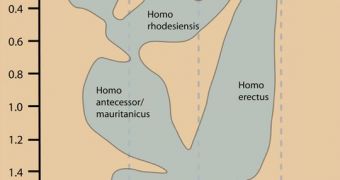Scientists at the Rice University have recently announced that they finished the painstaking and laborious work of browsing through thousands of genes and proteins, in order to discover the explanation for our biological complexity. One of the main reasons why we are like this today is the fact that we have evolved in a way that finally allows us to cope with the redundancies that usually arise from having duplicate genes.
“We have found a specific evolutionary mechanism to account for a portion of the intricate biological complexity of our species. It is a coping mechanism, a process that enables us to deal with the fitness consequences of inefficient selection. It enables some of our proteins to become more specialized over time, and in turn makes us more complex,” RU Bioengineering Professor Ariel Fernandez explains. Details of the work will appear in the December issue of the scientific journal Genome Research, but are already available for review online. Fernandez was the lead author of the paper.
“In all organisms, genes get duplicated every so often, for reasons we don't fully understand. When working efficiently, natural selection eliminates many of these duplicates, which are called 'paralogs'. In our earlier work, we saw that an unusual number of gene duplicates had survived in the human genome, which makes sense given selection inefficiency in humans,” the expert added. Fernandez learned that the key was in the packaging of the proteins, some of which appeared in the package worst than others did. This conclusion was drawn from previous prion research.
These proteins cause dosage imbalance, a phenomenon that refers to instances when certain genes are created in larger amounts than the body needs, during the essential gene duplication process. “For instance, dosage imbalance has been implicated in Alzheimer's and other diseases,” the scientist adds. The expert determined that these genes remaining in the body – due to inefficient selection – were one of the main reasons why random mutations occured.
“Portions of every gene act to regulate protein expression – by binding with microRNA, for example. We found numerous instances where random mutations had caused paralogs to be expressed dissimilarly, in ways that removed detrimental dosage imbalances,” Ferbabdez adds. “This observation fits with the general theory that large organisms with relatively small population sizes – compared to microbes – are subject to the vagaries of random genetic drift and hence the accumulation of very mildly deleterious mutations,” Indiana University Distinguished Professor of Biology Michael Lynch adds.

 14 DAY TRIAL //
14 DAY TRIAL //